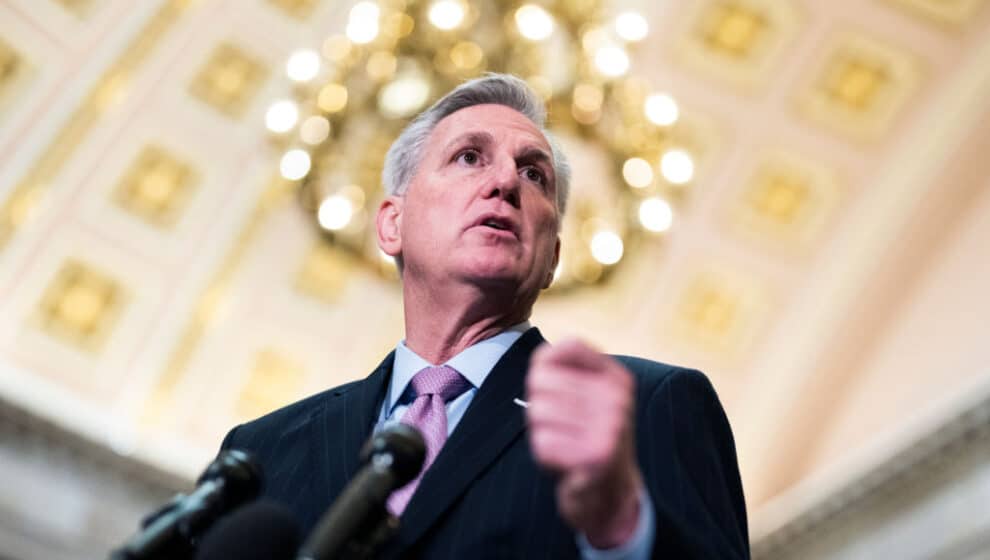Today the U.S. hit its debt limit, forcing U.S. Treasury Secretary Janet Yellen to implement “extraordinary measures” to prevent the government from defaulting.
Key Details
- Secretary Yellen has previously warned Congress that the government would reach its debt ceiling sooner than anticipated and asked that lawmakers raise the debt ceiling.
- Thursday, Yellen sent a letter to Speaker of the House Kevin McCarthy, alerting him that the debt ceiling had been reached and she would be taking steps to prevent the government from defaulting on its obligations.
- Congress has yet to raise the debt ceiling as House Republicans are seeking spending cuts as part of the process. They have faced opposition from the White House, which has said there will be no negotiations.
- If no agreement is reached, the U.S. government could default on its debt for the first time in the country’s history.
- Yellen’s extraordinary measures are accounting maneuvers that will give Congress until around June to reach a decision.
Why it’s news
While current estimates say that Congress will have until about June to reach an agreement, Yellen warned McCarthy in her letter that a firm date is difficult to determine. However, despite hitting the debt ceiling, neither side of the debate has budged.
In the past, Congress has been able to raise the debt ceiling with little debate and no concessions attached. However, Speaker McCarthy is in a somewhat precarious position. The recent speaker election was difficult, and the California representative emerged with less authority than his recent predecessors. Any member of the House may call for him to be removed as Speaker at any time.
The lack of security around his position means that he needs to work more carefully to keep his party happy, and right now, the party wants spending cuts.
Democrats, on the other side, are standing just as firm. White House Press Secretary Karine Jean-Pierre recently told reporters that raising the debt limit shouldn’t be filed with negotiations, saying it “should be done without condition.”
In the Senate, Minority Leader Mitch McConnell reassured constituents that an agreement will be reached eventually. He affirmed that the U.S. will not default on its debt.
“No, I would not be concerned about a financial crisis,” McConnell says. He added that debates about the debt ceiling are “always a rather contentious effort.”
Backing up a bit
The U.S. has hit its debt limit earlier than expected, and federal lawmakers are feuding about whether or not to raise the limit. U.S. Treasury Secretary Janet Yellen will invoke what the Treasury calls extraordinary measures to allow the U.S. government to continue operations.
These methods will extend the deadline to raise the ceiling until June.
Secretary Yellen’s plans are to redeem investments from various retirements—including the Civil Service Retirement and Disability Fund and the Postal Service Retiree Health Benefits Fund—and temporarily stop making new investments in these funds.
The Treasury Department will also pause investment in the Federal Employees Retirement System Thrift Savings Plan and the Government Securities Investment.
Congress must now decide whether or not to raise the debt ceiling, but the two parties are strongly divided. The debt ceiling was last raised in 2021 to around $31.4 trillion.
If no agreement is reached, it could trigger a government shutdown. The last government shutdown was in 2019. During a shutdown, non-essential government employees are furloughed while essential workers work without pay. When the shutdown is resolved, workers will receive back pay. Some government services may also be temporarily suspended during a shutdown.
